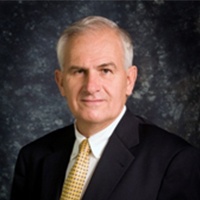Hendricks DUI-DWI Lawyer, West Virginia
Not enough matches for Hendricks DUI-DWI lawyer.
Below are all Hendricks Criminal lawyers.
Sean Thomas Logue
✓ VERIFIEDCriminal, DUI-DWI, Traffic, Felony
Serving Clients in the Greater Pittsburgh Area and West Virginia
Sean Logue is a diligent attorney who excels at representing people who have been charged with criminal and traffic offenses in Pennsylvania. He const... (more)
William C. Brewer
✓ VERIFIEDDivorce & Family Law, Medical Malpractice, Litigation, Criminal, Accident & Injury
Some Trial Lawyers Say They Have Experience. We Actually Do.
Legal challenges require top-level experience and skill. That’s why individuals and businesses in West Virginia (WV) turn to attorney William C. Bre... (more)
Trena Williams
DUI-DWI, Domestic Violence & Neglect, Mediation, Social Security -- Disability
Status: In Good Standing
FREE CONSULTATION
CONTACTAndrew Neil Frye
Juvenile Law, Employment, Divorce, Criminal
Status: In Good Standing Licensed: 20 Years
George F. Fordham
Oil & Gas, Employment, DUI-DWI, Contract
Status: In Good Standing Licensed: 46 Years
J. Brandon Shumaker
Criminal, Accident & Injury, Workers' Compensation, Medical Malpractice
Status: In Good Standing Licensed: 14 Years
Kevin T. Tipton
Accident & Injury, Criminal, Divorce & Family Law, Lawsuit & Dispute
Status: In Good Standing Licensed: 24 Years
Aaron Paul Yoho
Immigration, Child Custody, DUI-DWI, Contract, Divorce
Status: In Good Standing Licensed: 21 Years
Amelia G. Baisden
Real Estate Other, Government Agencies, Divorce & Family Law, DUI-DWI
Status: In Good Standing



